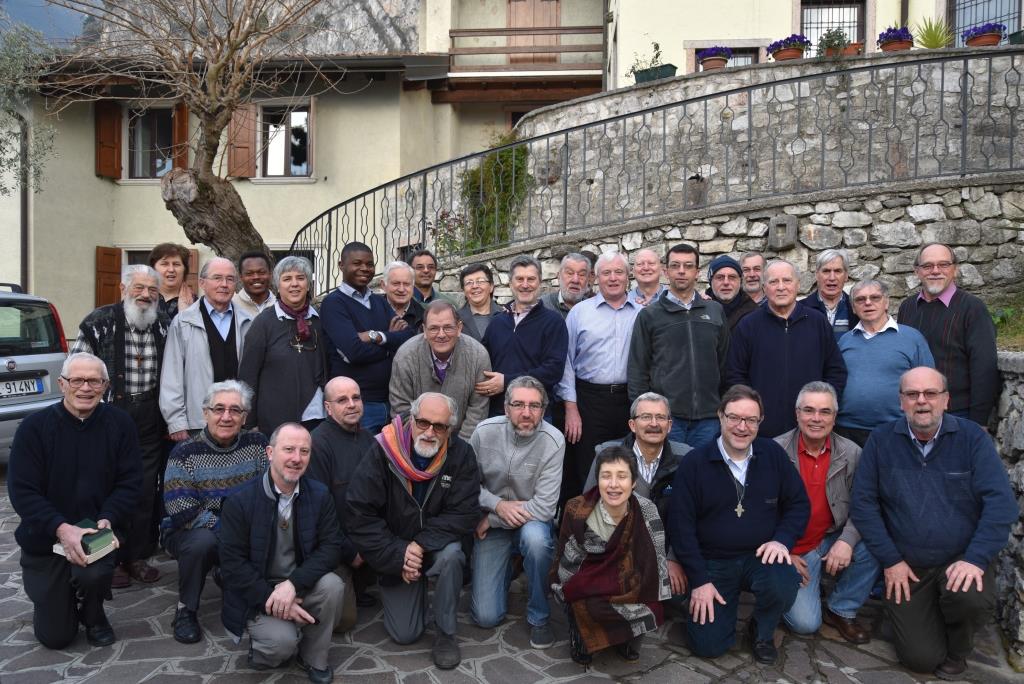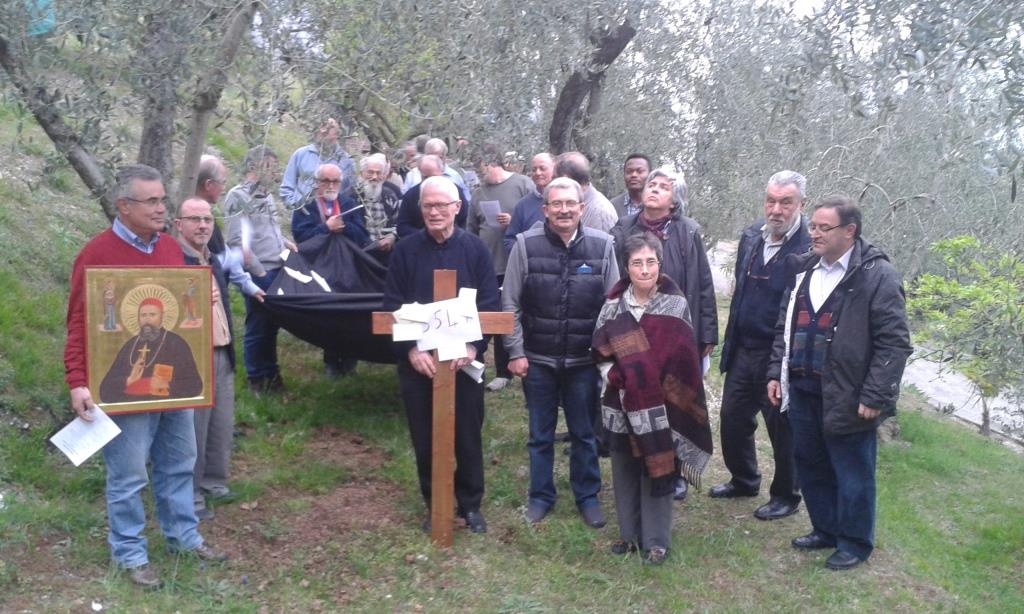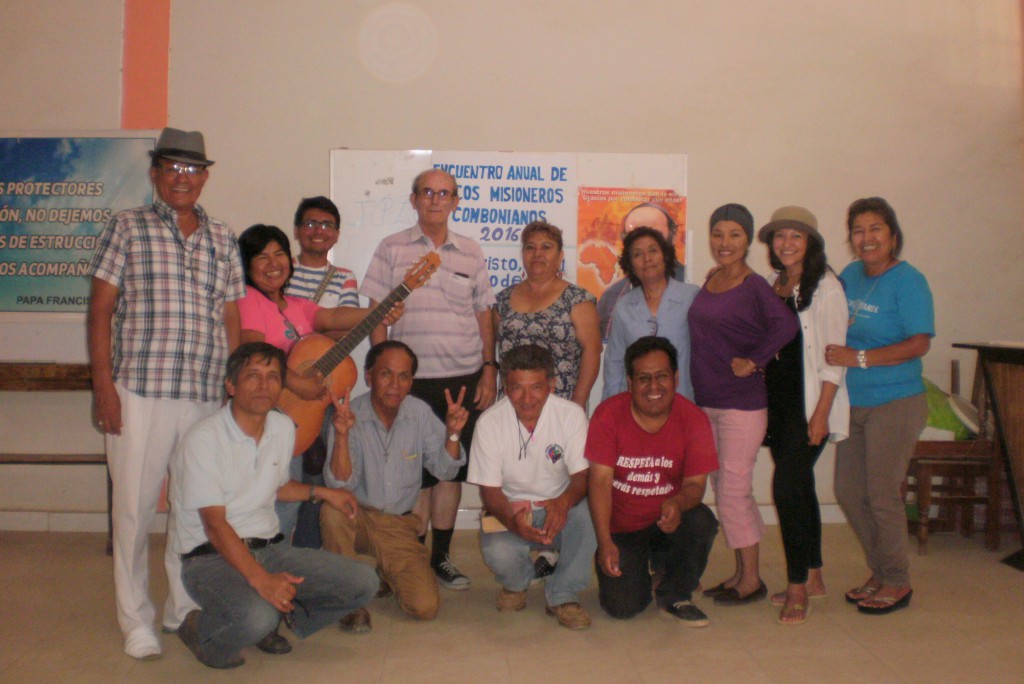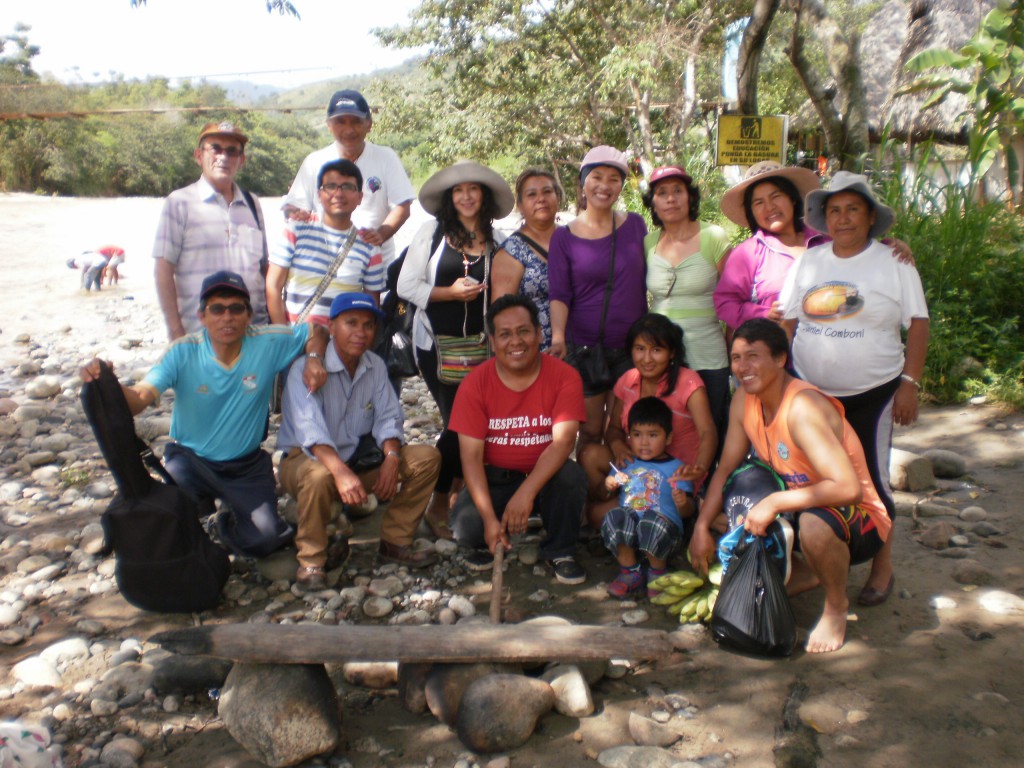 On March 5th, in the house of the Divine Word Missionaries in Lisbon, we participate in the seminar on “Human Trafficking” organized by CAVITP and guided by Sister Gabriella Bottani, Italian Comboni Missionary Sister.
On March 5th, in the house of the Divine Word Missionaries in Lisbon, we participate in the seminar on “Human Trafficking” organized by CAVITP and guided by Sister Gabriella Bottani, Italian Comboni Missionary Sister.
Human trafficking is a complex reality that violent life of specific individuals, their families and communities. An approach, smart, with heart, courage, structured, professional and above all networking is required.
It was no accident that the phrase chosen for the opening of the meeting was “Put out into deep water, and let down the nets for a catch” (Lk 5,4).
So we ask: What are these deeper waters in our lives: our trust in God, our fears and weaknesses, our look at the wounds of our brothers, the love to God and the neighbor…?
The network presented, it was concrete. Founded in 2009, the “Talita Kum” network is the International Network of Consecrated Life Against Trafficking in Persons. An international network of networks, which brings desires and expertise in the fight against this scourge that destroys many lives.
The approach to this problem has many facets.
In prevention rather than warn of the dangers that may lurk behind an attractive work offer from the other side of the world, mind giving prospects happy life in the place where people live, propose alternatives that engage positively the people on a project of meaningful life.
The warning must be launched at various levels, especially in education. Because we all have to do with this, in community, warn of situations, complaint, the protection of victims and relatives (two sides of a reality that can be separated by thousands of kilometers).
The study and research of the phenomenon are also crucial for a methodical and increasingly coordinated and effective action, multidisciplinary… because the resolution of the problems caused to the lives of people is never limited to policing. A psychological, sociological, spiritual view, a comprehensive care that cannot be limited in the short term is required.
During the meeting, some real testimonies of people rescued from trafficking networks were also presented. True stories that tell the greatness of the victims who crossed oceans of pain and fear and were able to return to life… no doubt with many scars, but standing examples of courage and a sign of hope for us all.
I was especially impressed by the testimony of a mother to see her daughter back home and still labeled and stigmatized by the community of origin exclaiming with pain: …but she’s my daughter!
How different will be the world, when we would be able to look at all the victims in such a way … with a look of love. We will be truly contemplative then because, as Pope Francis says, who loves contemplates (cf. EG 199).
Finally, as a challenge, I share here the challenge of Talitha Kum network on what each of us can do to join this cause. Let us do it!
What can you do to help?:
- Learn about human trafficking in the world and in your country.
- Contact and meet organizations in your country that are committed against human trafficking.
- Participate as a volunteer in prevention activities and political denunciation.
- Support this cause with prayer.
- Support and participate in campaigns against trafficking.
- Buy products in centers of socio-economic reintegration of survivors of trafficking.
- Support financially.
“If you want to go fast, go alone.
If you want to go far, go together”.
(African Proverb)
Pedro Moreira, CLM
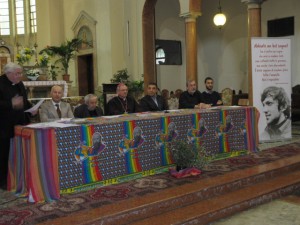 The diocesan phase of the beatification process of “Servant of God” Father Ezekiel Ramin – already proclaimed “martyr of charity” by Pope John Paul II – began with the first public meeting on Saturday 9 April in the Italian city of Padua. Father “Lele” Ramin, a Comboni Misionary of Padua, died on July 24, 1985 in Cacoal, Brazil. Research on the reputation of holiness, based on the “super martyrdom” shows an awareness that the religious died in defense of its own faith, of peace and justice.
The diocesan phase of the beatification process of “Servant of God” Father Ezekiel Ramin – already proclaimed “martyr of charity” by Pope John Paul II – began with the first public meeting on Saturday 9 April in the Italian city of Padua. Father “Lele” Ramin, a Comboni Misionary of Padua, died on July 24, 1985 in Cacoal, Brazil. Research on the reputation of holiness, based on the “super martyrdom” shows an awareness that the religious died in defense of its own faith, of peace and justice.



